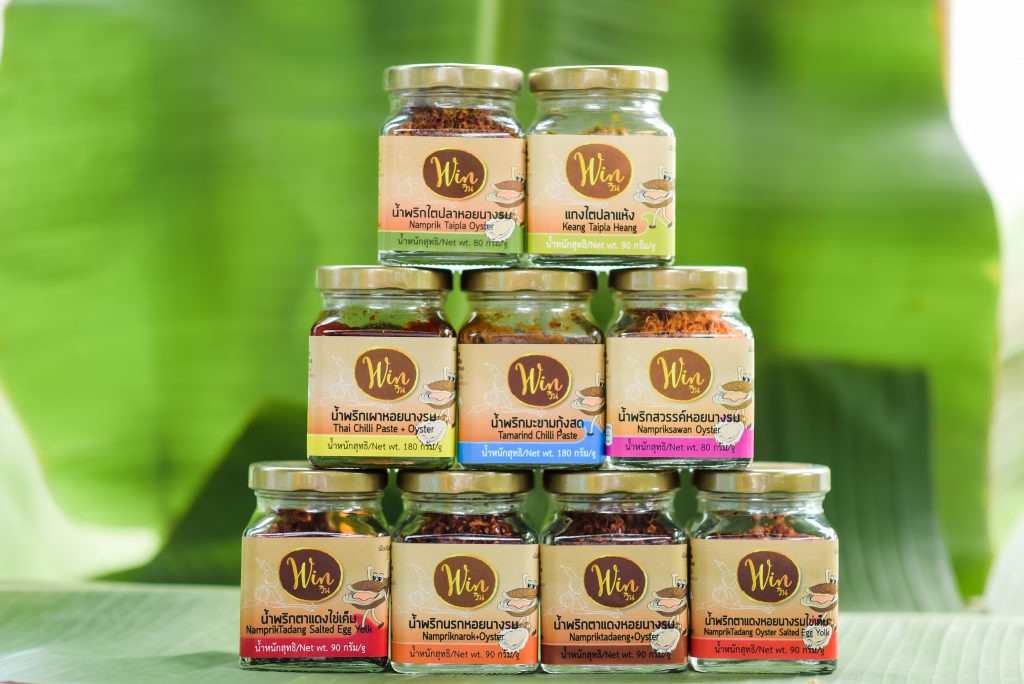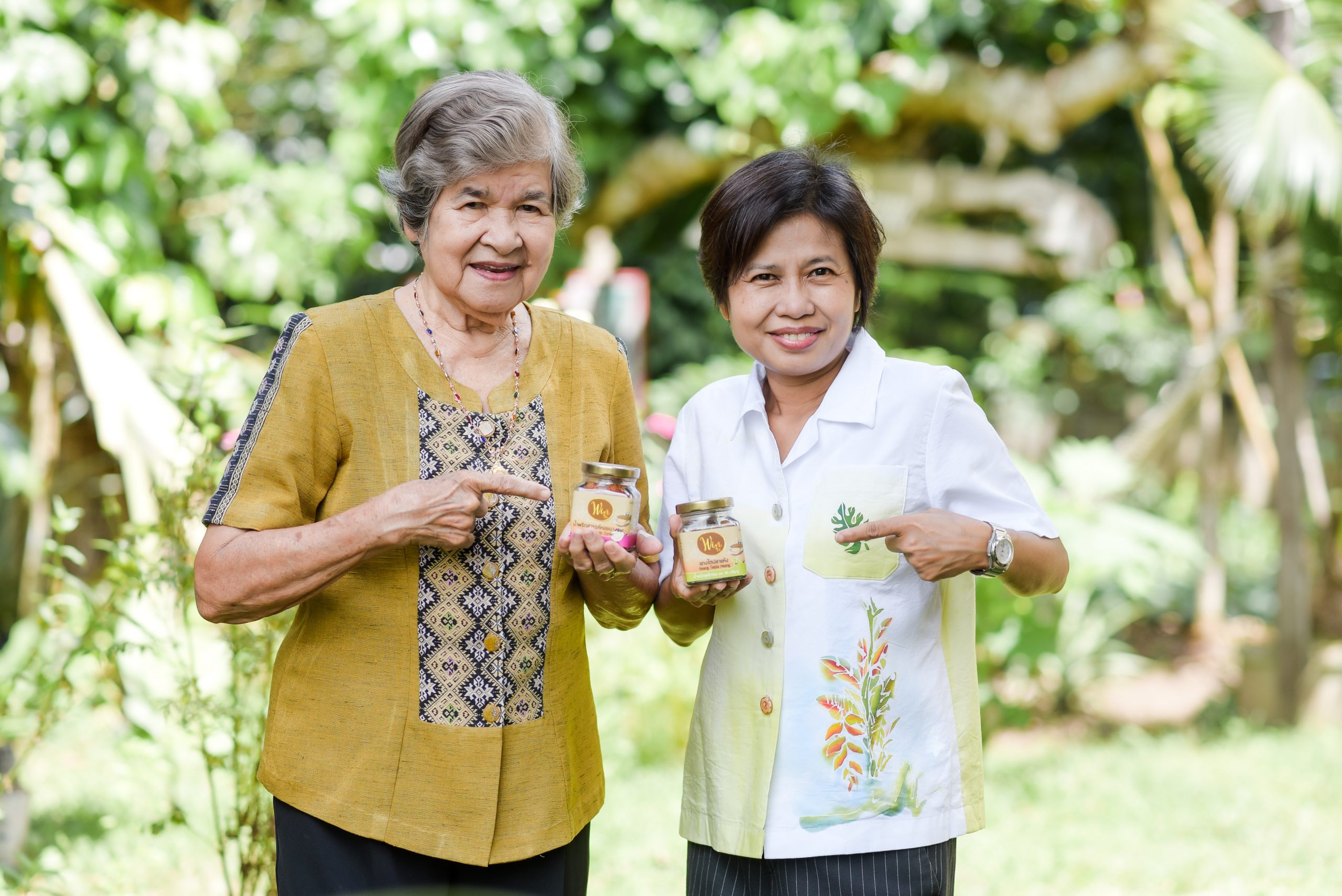How a maker of traditional oyster chili paste embraced online tools to protect the incomes of women in Surat Thani
Thailand’s Department of Agricultural Extension established the “Farmer Housewife Groups (กลุ่มแม่บ้านเกษตรกร)” in 1970 to empower women in the agricultural sector. Today, around 6.47 million women work in the agricultural sector. The group’s members still come together on a voluntary basis to process agricultural produce into products, which helps increase their household income and improve their living conditions amid growing challenges due to climate change and volatile crop prices. Today, there are around 20,000 such groups nationwide.
dtacblog spoke to Benjanart Kongchareon of Sontiwat Farmer Housewife Group in Surat Thani. A participant in the dtac Net for Living program, she turns local produce into popular OTOP (One Tambon One Product) products with seven-figure sales (in Thai baht).
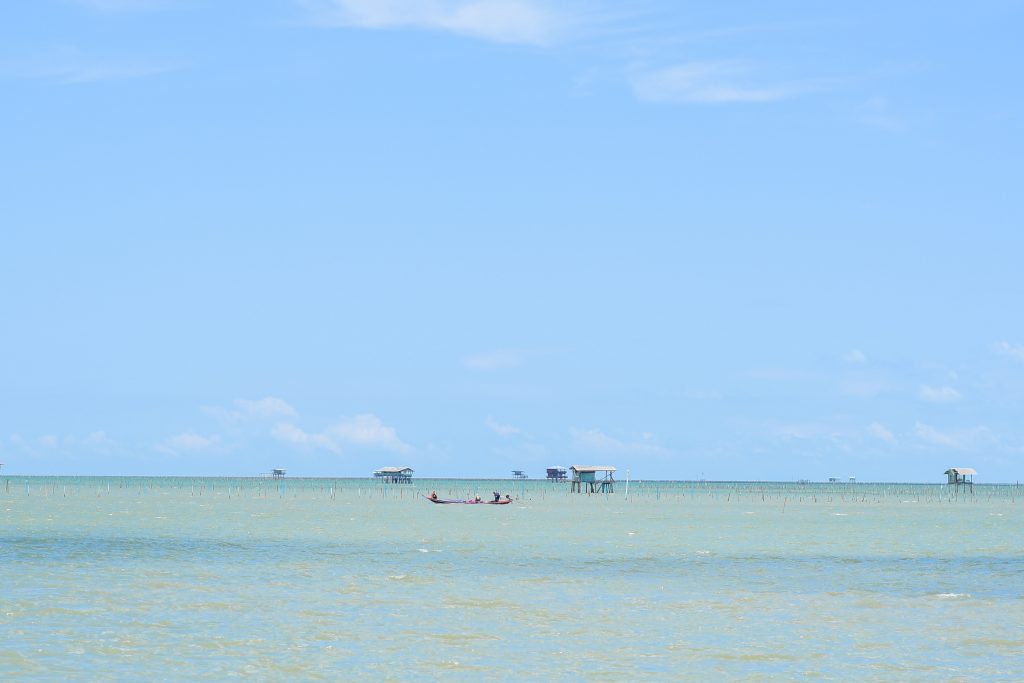
Building a Brand Identity
Ka Dae sub-district is located in the Southern province of Surat Thani. Most people there are farmers, growing palm trees, rubber trees, longan, mangosteen, durian or various vegetables. Others own oyster farms, which is one of Surat Thani’s signature products. However, in the past decade, extreme weather and climate change has resulted in longer summers, heavy downpours, and frequent floods that ravage the region’s farmland and oyster farms.
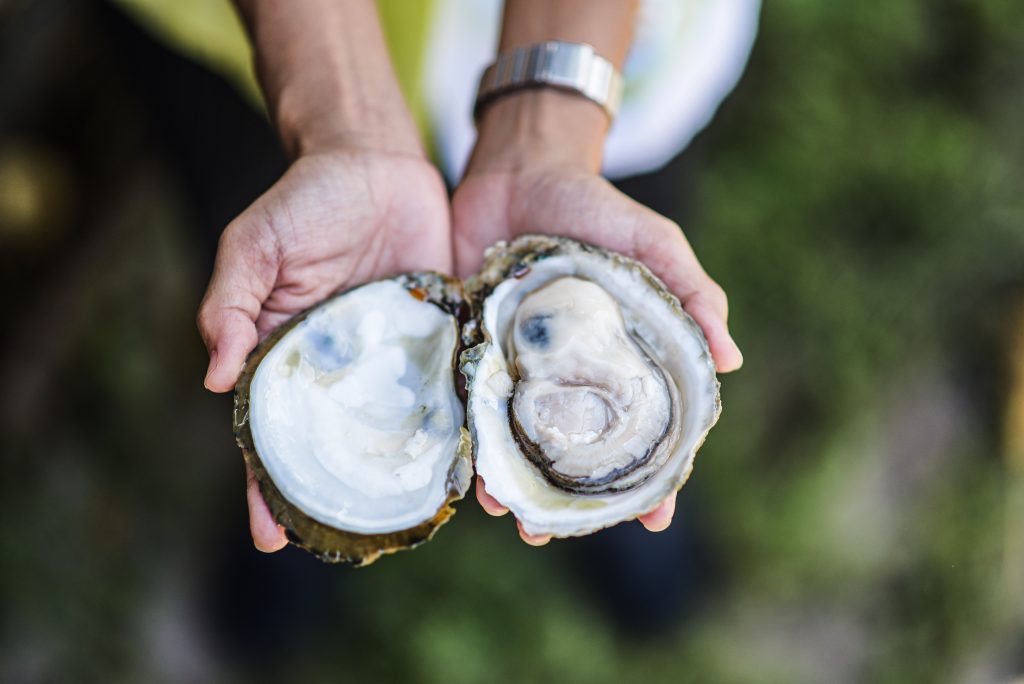
The community’s economic situation improved when Wimon Kongchareon, the president of the Sontiwat Farmer Housewife Group, started developing chili paste using oysters, Surat Thani’s renowned ingredient. The product, which offers natural sweetness and an intense herbal flavor, quickly became an OTOP best-seller. Her group is also among the first few Surat Thani-based chili-paste manufacturers to meet the Food and Drug Administration’s standards.
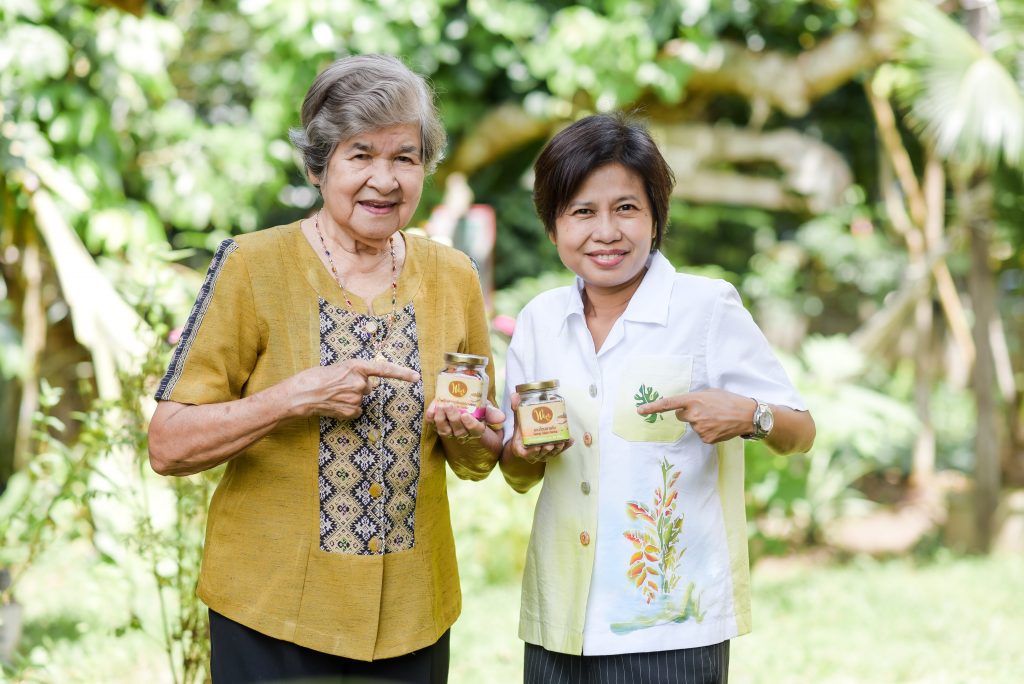
In 2004, Ms. Wimol stepped down due to old age, and her daughter Benjanart Kongchareon. headed back from Bangkok to take over the business. Under her leadership, the Sontiwat Group’s products were improved in terms of variety and packaging. They conducted market research to ensure the products offered suit the market needs, and one feedback they learned was about variety. Today their products range from namprik ta daeng (Red Chili Paste), namprik pla (Fish Chili Paste), to namprik kaeng taipla (Fish Chili Curry Paste). The brand became successful and enjoyed impressive sales growth. Then the pandemic hit.
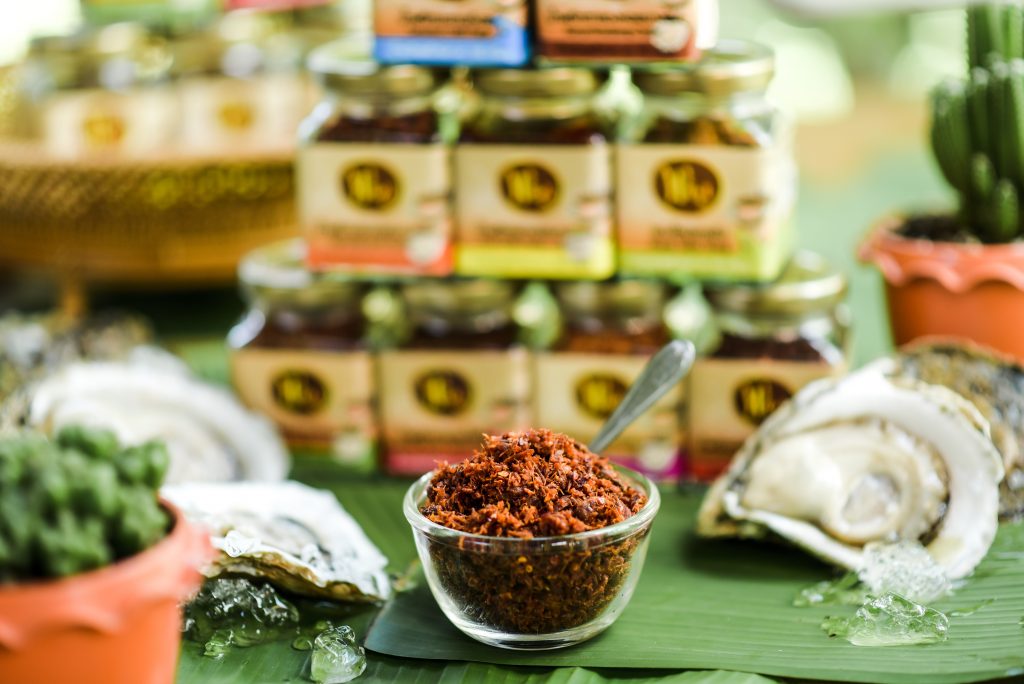
Switching to Online Sales
Before Covid-19, the major distribution channels for the Sontiwat Group were shops at Hat Yai International Airport and large supermarket branches. Their products were bought by tourists as souvenirs. During tourism boom, they used to earn as much as one million baht per year.

“The pandemic crisis seriously hampered our sales. The airport, which was our major distribution channel, was completely shut down,” Ms. Benjanart said. “Fortunately, I love learning new things and catching up with trends. When Facebook first launched its fan page and LINE introduced its Official Account, I started using them right away,” Ms. Benjanart said. “I always participate in training and workshops to seek more knowledge.”
Hence, Ms. Benjanart was eager to join the dtac Net for Living program when it was open for application.
“dtac Net for Living expands possibilities of the online world for us. We were taught many insightful tips on storytelling, food photography, and digital content marketing, to build presence online,” she said. “The coaches were very attentive and helpful, and beginners are welcomed to participate in this program.”
With its focus on digital sales, the Sontiwat Group was thus able to retain its female employees and continue operating despite COVID-19. And its growing online fanbase ensures they can now weather airport closures and lockdowns more easily.
